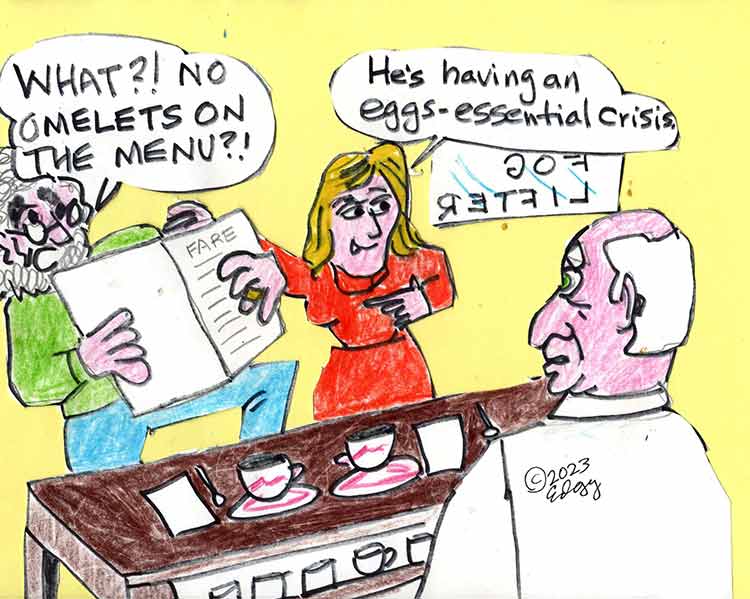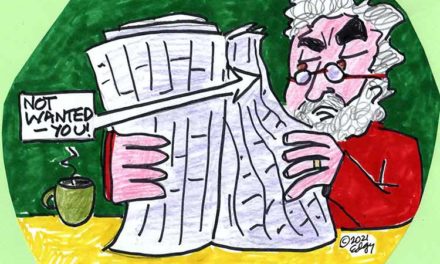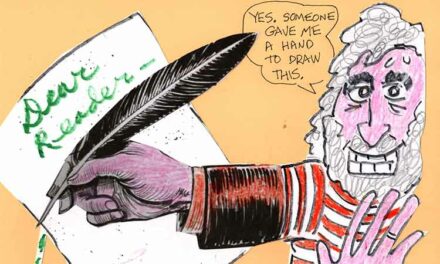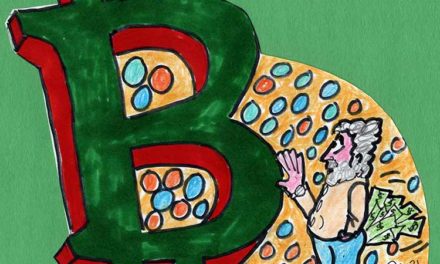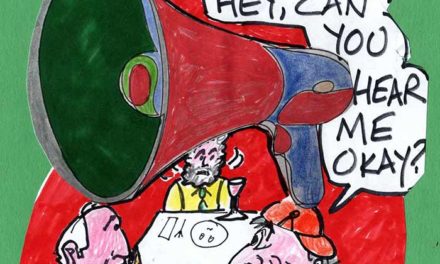Travels with an Absurdist: Bridge Out, Slow to 60
Albert Camus and Moi on a Vacation Read
By Ed Goldman
On a summer vacation this year I experienced an existential crisis about how many idiots use the term “existential crisis” to describe something neither existential nor especially critical.
I don’t have accurate findings but I’m willing to guess it’s roughly the same number of people who use the word “tragedy” to describe something that’s anything but—like forgetting their reading glasses or one of their 16 passwords.
A rather obvious yolk
On further reflection, I’ve decided that the people who obliviously toss around the term “existential crisis” and “tragedy” not only number the same but are likely the same people. They may also be the ones who say, “Enough is enough!” after the latest mass shooting and call an investigation into any political leader they support a “witch hunt.” (Historical note: A real witch hunt usually ended in someone being burned alive, not free to run for President.)
What brought this to mind was my having toted on a summer vacation this year the book “Travels in the Americas”—reflections by Albert Camus, the great French existentialist writer who neither liked being called French (he was born in Algiers) nor an existentialist (a description always applied to him, possibly because he was friends with Jean Paul Sartre. Sartre was an actual French existentialist).
What Camus really seemed to believe in was the absurdity of life—since we were going to die anyway, why bother to search for meaning? But he retained a life-affirming stance, saying, in essence, that if you can accept the actual tragedy of your life—that its protagonist (you) aren’t going to get out alive—you can sort of relax into it and enjoy the beauty of nature, people, living and ideas.
“Travels in the America’s” is a mostly entertaining diary of Camus’s trips to North and South America a couple of years after the end of World War II. In it the writer takes philosophy breaks, during which he speaks eloquently of his love for the open sea and expresses his view that a major difference between a saint and God is that a saint doesn’t kill people.
He is clearly cheered by the American way of life (the optimism) but appalled at the American way of death, noting that a funeral home advertises its services by saying, “You die. We’ll do the rest.” It’s a theme Evelyn Waugh explored in “The Loved One,” based in part on his astonishment when he discovered the promotional excesses of Forest Lawn Cemetery on a trip to Hollywood.
This was a similar reaction I had decades later when I discovered that a cemetery near my home, where my wife Jane is buried, had a banner over its entry gate informing the public it had been voted one of the best cemeteries in America. (My question when I first wrote about this was, Who were the voters?)
When he took his back-to-back trips, Camus had just written a play about Caligula, the allegedly wackiest of Roman emperors—which was being translated into English and set to debut on Broadway—as well as “The Plague,” the prescient novel often referenced by editorial writers as we dealt with our own pandemic many years later.
My favorite of his novels, “The Fall,” features a famous scene in which a vainglorious man escorts a sightless one across a busy street, then tips his hat to the man. The obvious question is, Who’s he bowing to, since the blind man can’t see him doing it? Everyone who just witnessed the man’s gesture, of course.
Camus won the Nobel Prize for Literature when he was 44, not quite 20 years after his bi-coastal adventure. Three years later he died in a car crash at the age of 46. Talk about tragic. Talk about absurd. Talk about an existential crisis.
Don’t forget! A new Goldman State Podcast drops every Friday!
Ed Goldman's column appears almost every Monday, Wednesday and Friday. A former daily columnist for the Sacramento Business Journal, as well as monthly columnist for Sacramento Magazine and Comstock’s Business Magazine, he’s the author of five books, two plays and one musical (so far).



